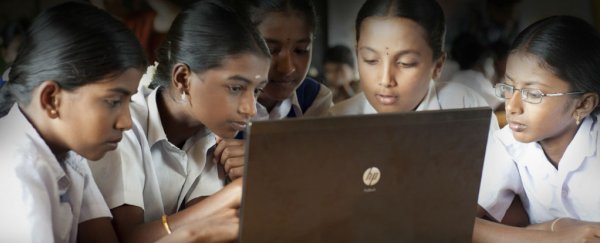Google and Microsoft have partnered up to deliver free Wi-Fi to 400 train stations across India, plus low-cost broadband to 600,000 rural villages, in an effort to connect some of the 4 million people in the subcontinent who are living without Internet access.
India's Prime Minister Narendra Modi announced at a press conference this week that on top of the commitment to connect train stations and hundreds or thousands of rural villages to the Internet, all schools and colleges would also gain access, saying the enterprise is "perhaps unmatched in human history".
Because home Internet access for everyone living in those 600,000 rural villages isn't exactly feasible, the government has committed to the setting up of Common Service Centres where anyone can afford to get online. He said this is particularly important for farmers, so they can better understand the market and predict the weather trends that will make or break their businesses.
While the details of exactly how Microsoft and Google will roll out the technology are yet to be announced, it could work in much the same way as Microsoft's previous efforts in connecting African villages to the Internet - harnessing what's known as the white-space spectrum to deliver a broadband connection to places that lack electricity. As John Callaham explains at Neowin, "White spaces are parts of the television spectrum that are no longer being used by TV stations but can be modified to send data at high speeds over long distances."
Announced back in 2013, Microsoft's 4Afrika Initiative takes advantage of this unused TV broadcast spectrum to deliver broadband to places in Kenya, Tanzania, and South Africa, so the plan for connecting remote Indian villages will likely use the same technology.
"We believe that low-cost broadband connectivity coupled with the scale of cloud computing intelligence that can be harnessed from data can help drive creativity, efficiency and productivity across governments and businesses of all sizes," Microsoft CEO Satya Nadella said during the news conference.
More details on the Digital India initiative are expected to be announced later this week.
